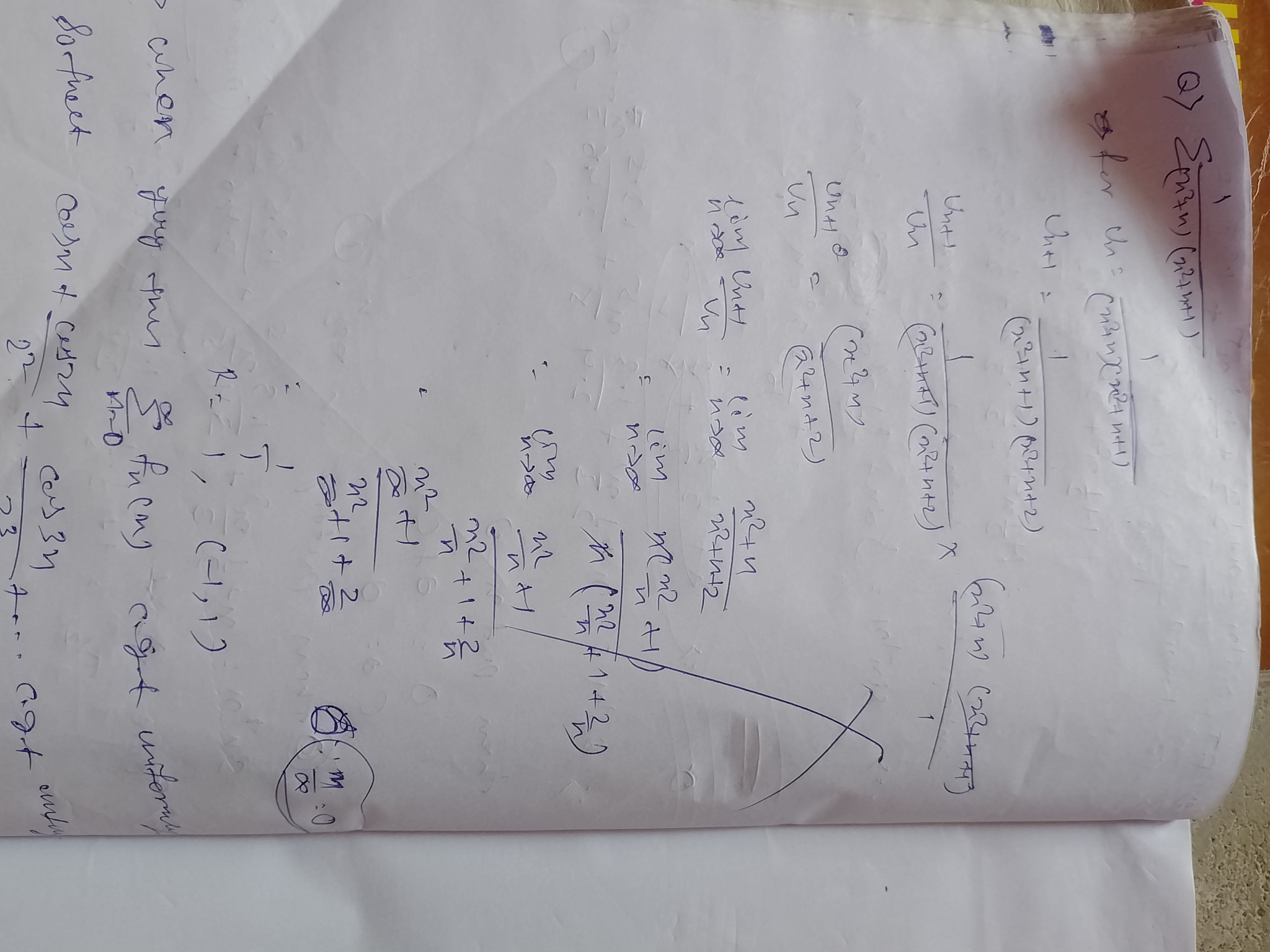Σ (n * (sin(n) * (cos(n+1)))) as n approaches infinity

Understand the Problem
The question appears to be asking for a resolution of a mathematical series involving summations and possibly trigonometric functions. It requires finding the sum but lacks clarity on specific details due to the handwritten notation.
Answer
The series sums to $-H_n + 2H_{n+1}$.
Answer for screen readers
The final answer for the series is expressed as: $$ -H_n + 2H_{n+1} $$ where $H_n$ is the $n$-th harmonic number.
Steps to Solve
- Identify the series components
Looking at the summation, it appears to involve terms like $ \frac{n}{(n+1)(n+2)} $. Identify if this can be simplified using partial fractions for clarity.
- Compute partial fractions
The expression $ \frac{n}{(n+1)(n+2)} $ can be rewritten as the sum of simpler fractions: $$ \frac{A}{n+1} + \frac{B}{n+2} $$ To find $A$ and $B$, you multiply by the denominator: $$ n = A(n+2) + B(n+1) $$
- Set up an equation
Expanding gives: $$ n = An + 2A + Bn + B $$ Combine like terms: $$ n = (A + B)n + (2A + B) $$
- Equate coefficients
From this, you have the system:
-
$A + B = 1$
-
$2A + B = 0$
-
Solve for A and B
From the first equation, $B = 1 - A$. Substitute into the second: $$ 2A + (1 - A) = 0 $$ This simplifies to: $$ A + 1 = 0 $$ Hence, $A = -1$ and $B = 2$.
- Rewrite the original expression
Using these values, rewrite the series as: $$ \frac{-1}{n+1} + \frac{2}{n+2} $$
- Sum the series
Recognize that the series can now be expressed as: $$ \sum \left( \frac{-1}{n+1} + \frac{2}{n+2} \right) $$. Distributing the summation gives: $$ -\sum \frac{1}{n+1} + 2\sum \frac{1}{n+2} $$.
- Evaluate the simplified sums
Each sum can be approximated using the harmonic series, leading to a final evaluation.
The final answer for the series is expressed as: $$ -H_n + 2H_{n+1} $$ where $H_n$ is the $n$-th harmonic number.
More Information
Harmonic numbers are defined as $H_n = 1 + \frac{1}{2} + \frac{1}{3} + \ldots + \frac{1}{n}$. They arise frequently in mathematics, particularly in series and complex analysis.
Tips
- Confusing the indices when summing terms.
- Neglecting to simplify terms properly before integrating or summing.
- Forgetting to account for convergence when dealing with infinite series.
AI-generated content may contain errors. Please verify critical information